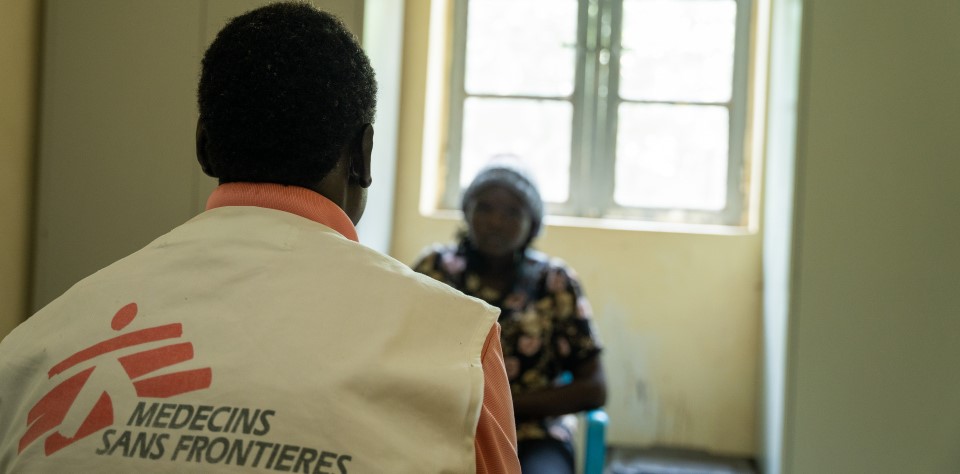When traditional herbs failed to calm the turmoil in his mind, Samat Nyuk’s family felt they had no other option: They asked local authorities to detain their 33-year-old son.
“I knew I was unwell, but not a criminal. I needed support, not punishment,” Nyuk recalled. “What hurt the most was that my own family chose prison for me instead of treatment.”
His story is a common one in South Sudan, where a profound mental health crisis, fueled by decades of conflict, displacement and poverty, is met with a severe lack of services. With no psychiatric care available in Malakal, desperate families sometimes see incarceration as a last resort to keep their loved ones safe.
At the onset of his illness, Nyuk experienced terrifying hallucinations.
“I felt like I was crossing a river where the water reached my neck, and I saw fingers pointing at me while voices urged me to drown,” he said.
After a friend sought help, a local elder provided an herbal root that offered only momentary relief. Fearing for his son’s safety and the family’s well-being, Nyuk’s father turned to the authorities. In June, Nyuk was restrained and taken to Malakal Central Prison, where he was placed in a small, isolated cell reserved for those with mental illness.
Life there was brutal. He was confined to a dark cell with only a thin mat, enduring cold nights, swarms of mosquitoes and the relentless voices in his head.
“In many cases, detention centers become the only places where those with severe symptoms can receive care or be kept safe,” said Laura Ximena, Mental Health Activity Manager for Doctors Without Borders, known by its French acronym MSF, in Malakal. “While this is far from ideal, it reflects the urgent need for enhanced mental health infrastructure in the region.”
The need for mental health support is vast in South Sudan, yet services remain woefully inadequate. Access to professionals, effective treatments and community awareness is limited. The consequences are stark: individuals with mental health conditions often face stigma, neglect, or are treated as criminals.
MSF provides mental health services at Malakal Teaching Hospital and, until its closure in June, at a nearby protection of civilians site. Since 2023, the organization has also been offering care and psychiatric medications inside the central prison.
Between January and August of this year, MSF provided 1,130 mental health consultations in Malakal, primarily supporting individuals diagnosed with psychosis, bipolar disorder, depression, and conditions involving psychoactive substance use.
The lack of options leads many to desperate measures. Between January and September, 12 patients seen by MSF admitted to contemplating suicide, citing prolonged trauma, instability, inadequate support, food insecurity and exposure to violence. In April alone, four patients attempted suicide and one held suicidal thoughts.
MSF also runs awareness campaigns, including brief talks in hospital waiting areas, community discussions with local leaders, sessions in secondary schools and radio programs in local languages.
The organization’s work shows that recovery is possible with medication, counseling and community support. But progress remains fragile without broader food security, social support and a functional health system.
“Mental health must be integrated into primary healthcare across South Sudan,” Ximena said. “Community awareness and family involvement are equally vital. Above all, individuals with mental health conditions deserve to be treated as persons with dignity.”
MSF continues to follow up with Nyuk and other patients who have been sent home, providing medication and counseling. Now free, Nyuk is regaining his strength and searching for a job.
“What gives me hope now is freedom,” he said. “Prisons are not suitable for individuals with mental health conditions. We need hospitals — places offering treatment, food, and hope for recovery.”




